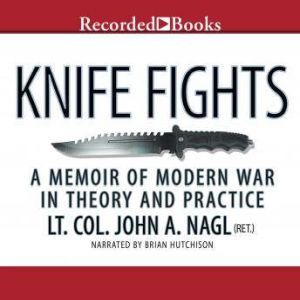Synopsis
From one of the most important army officers of his generation, a memoir of the revolution in warfare he helped lead, in combat and in Washington When John Nagl was an army tank commander in the first Gulf War of 1991, fresh out of West Point and Oxford, he could already see that America's military superiority meant that the age of conventional combat was nearing an end. Nagl was an early convert to the view that America's greatest future threats would come from asymmetric warfare-guerrillas, terrorists, and insurgents. But that made him an outsider within the army; and as if to double down on his dissidence, he scorned the conventional path to a general's stars and got the military to send him back to Oxford to study the history of counterinsurgency in earnest, searching for guideposts for America. The result would become the bible of the counterinsurgency movement, a book called Learning to Eat Soup with a Knife. But it would take the events of 9/11 and the botched aftermath of the Iraq invasion to give counterinsurgency urgent contemporary relevance. John Nagl's ideas finally met their war. But even as his book began ricocheting around the Pentagon, Nagl, now operations officer of a tank battalion of the 1st Infantry Division, deployed to a particularly unsettled quadrant of Iraq. Here theory met practice, violently. No one knew how messy even the most successful counterinsurgency campaign is better than Nagl, and his experience in Anbar Province cemented his view. After a year's hard fighting, Nagl was sent to the Pentagon to work for Deputy Secretary of Defense Paul Wolfowitz, where he was tapped by General David Petraeus to coauthor the new army and marine counterinsurgency field manual, rewriting core army doctrine in the middle of two bloody land wars and helping the new ideas win acceptance in one of the planet's most conservative bureaucracies. That doctrine changed the course of two wars and the thinking of an army. Nagl is not blind to the costs or consequences of counterinsurgency, a policy he compared to "eating soup with a knife." The men who died under his command in Iraq will haunt him to his grave. When it comes to war, there are only bad choices; the question is only which ones are better and which worse. Nagl's memoir is a profound education in modern war-in theory, in practice, and in the often tortured relationship between the two. It is essential reading for anyone who cares about the fate of America's soldiers and the purposes for which their lives are put at risk.



